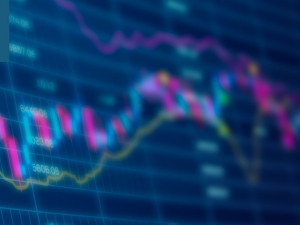
England re-enters full lockdown
Morning mid-market rates – The majors
5th January: Highlights
- Any Brexit boost likely to be lost in lockdown misery
- Possibility of net job losses hits risk appetite
- Activity index beats forecasts
Economy to suffer as country grinds to a halt
In an effort to wrest back control Johnson announced that from midnight last night, everyone should stay indoors unless any trip was essential.
It was a day of contrasts as the Oxford/AstraZeneca vaccine began to be given.
Following the announcement of the lockdown, it appears that the Government is pinning its hopes upon the delivery of the vaccines to conquer the pandemic.
Given what happened to the economy during the first lockdown which started in March of last year, it is vital that the new measures not only work but work quickly. Chancellor Rishi Sunak has already extended the Government’s furlough scheme until the end of April, but he is bound to face pressure to put other regional and/or industry specific measures in place.
Any short-term benefit to the economy from the UK’s departure from the EU is likely to be wiped-out by the announcement of fresh restrictions and the country is facing another recession depending on how long the measures remain in place.
Schools are already likely to stay shut until the half-term break in mid-February and it could be that the lockdown extends into March as Johnson has set himself an ambitious goal of having the four most vulnerable groups vaccinated by the end of next month.
The pound, which was already exhibiting signs of suffering from altitude sickness, fell back versus the dollar as rumours of the lockdown spread. It reached a low versus the dollar of 1.3541, closing at 1.3568.
Against the euro, it was a similar story with a challenge to the important 1.10 level now likely. Sterling fell to a low of 1.1050, closing at 1.1076.
Activity expectations will be badly affected by the new lockdown, as will the employment rate which had been starting to show signs of improvement. Johnson announced last evening that the next three weeks are vital for the NHS, but it will be the next three months that will determine just how far the economy is set to fall.
Considering your next transfer? Log in to compare live quotes today.
Jobless data causing concern
The State of Georgia goes back to the polls today to elect two Senate seats, the result of which will determine Joe Biden’s ability to make a real difference over the next four years.
Early predictions point to an extremely tight race, similar to the Presidential vote which took place in November.
It remains to be seen if the recording that was released at the weekend of Donald Trump hectoring Georgia’s Secretary of State into finding 11k votes to change the result of the election will have any effect.
If the Democrats win both seats it means that the Upper House would be evenly divided between the Republicans and Democrats and Vice-President elect Kamala Harris would cast the deciding vote in any ballot. With the Lower House already in Democrat hands it would mean a significant change in the balance of power nationally.
Concerns are beginning to be raised that the December employment report that will be delivered on Friday may see numbers of new jobs fall for the first time since the early days of the Pandemic.
While it is currently predicted that around 100k new jobs were created, fears are growing that may be a considerable over-estimation.
The announcements of a new lockdown in the UK and an extension of current measures in Germany until the end of the month affected risk appetite and saw the dollar index begin to consolidate after weeks of falls as investors reacted to the announcement of two working vaccines.
It traded between 89.42 and 89.94, closing at 89.87.
Services data may break 50 when released tomorrow
As Spanish and Italian output rallied slightly, German output fell back slightly most likely in reaction to its stronger restrictions. Tomorrow’s release of services and consolidated activity data will now be more significant with a continued improvement towards the pivotal 50 level likely.
Employment data for Germany will be released this morning with an increase of 10k in the number of unemployed expected, that follows a fall of 38k in November.
Retail sales data for Germany will also be released this morning and it will be no surprise when they slip back into negative territory. December sales are expected to fall back by 2% after a 2.8% rise in November.
These data releases cloud the picture to the single currency which was in the thrall of the dollar for much of the past twelve months.
The rollout of the Covid vaccines is critical to the region as they are elsewhere, and data for new cases and fatalities across the entire region will be closely observed.
Yesterday, the euro fell back a little reaching a low of 1.2231 before closing at 1.2249.
If the rollout of the vaccine can be seen to be improving the economic outlook and the tourism and hospitality sectors are seen to be benefiting, the single currency could be on the cusp of a significant rally. However, should lockdowns spread or be extended further then a long hard winter/early spring is in prospect.

About Alan Hill
Alan has been involved in the FX market for more than 25 years and brings a wealth of experience to his content. His knowledge has been gained while trading through some of the most volatile periods of recent history. His commentary relies on an understanding of past events and how they will affect future market performance.”



